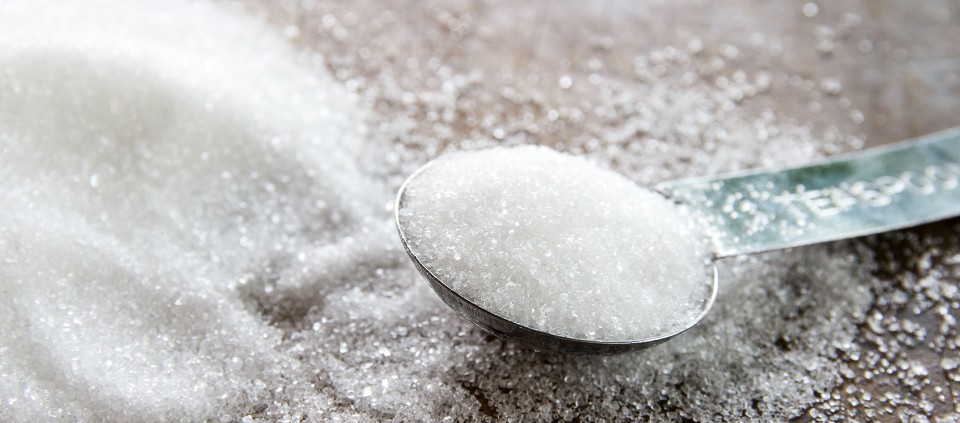Sugar: Medicine, Poison, or Pleasure?

A few months ago, I wrote an article for the Doximity Network called “Say It Like It Is: Sugar Is a Drug.” The feedback I got from this piece was mostly positive—people writing in to say that they, too, had felt addicted to sugar, and found that cutting down (or cutting it out completely) improved their physical and emotional health.
But some people found the article moralizing or shaming. They felt that by calling sugar a drug, I was judging anyone who chooses to eat it. But to say that sugar is a drug does not mean that it is necessarily “bad.” Though we often hear the word “drug” used in a derogatory way, it is actually a neutral term, defined by the Oxford Living Dictionaries as “a medicine or other substance which has a physiological effect when ingested or otherwise introduced into the body.”
Sugar is like any drug or medication. In appropriate amounts, it has a desired, time-limited clinical effect (in this case, reducing pain or inducing pleasure) but in excessive amounts, it can cause long-term, negative health consequences, such as high blood sugar, hypertension, and fatty liver disease. This is very similar to acetaminophen, the active ingredient in Tylenol, which is safe in low doses to treat pain, but in doses greater than 2000 mg per day can damage the liver. In the same way, ibuprofen, the active ingredient in Motrin, can reduce inflammation and pain, but in some people may cause stomach upset and occasionally more severe side effects, like gastrointestinal bleeding, high blood pressure, and kidney damage.
All drugs (medicines, if you prefer that term) have side effects. This is simply a result of their potency. And many drugs have the potential to cause dependence when used frequently. We’ve learned in recent years that this is true of all pain relievers, even over-the-counter agents like Tylenol and Motrin. But not all drugs have addictive potential.
In this regard, sugar is more akin to alcohol than Tylenol. Some people find alcohol increases their pleasure in life, and they can enjoy it occasionally and in moderation, without becoming addicted and without suffering negative health consequences. Research has shown that moderate consumption of alcohol may even have a cardioprotective effect, and some of the populations featured in the book The Blue Zones credit their longevity to a small amount of alcohol (although the conversation around the health risks of alcohol, especially regarding breast cancer, is controversial).
But other people find that they have trouble consuming only moderate amounts of alcohol, and drink to the point where their behavior or health becomes impaired. When problematic drinking escalates to the level of dependence or addiction, the standard approach is to stop drinking alcohol entirely. Though it might be technically safe, health-wise, for someone who struggles with alcohol to have an occasional beer, for most people this presents too much of a risk. That one drink turns into many, and the addiction reasserts itself.
And so I have found with sugar. I’ve taught and written about the physiologic effects of sugar for more than a decade, and have listened to patients describe their relationship to sugar for nearly twice that long. While I’ve met some people who seem entirely immune to the addictive quality of sugar, I’ve worked with hundreds more who describe overwhelming cravings that derail their physical and mental health. They try to cut back, only to find themselves drawn back into a cycle of binge and regret.
What concerns me about this pattern is not just the negative impact on their health, but the self-blame that usually accompanies the pattern. Understanding that sugar is a drug can help people see that the problem may not simply reside with them, as is usually implied by health professionals, but with the substance itself. This can present a turning point where they might choose to avoid sugar, not because it is “bad,” or they are “weak-willed,” but because their physiology and its neurochemistry produce negative consequences to their health and well-being.
In the words of Paracelus, the Renaissance physician and alchemist credited with pioneering the use of chemical agents in medicine: “All things are poisons, for there is nothing without poisonous qualities. It is only the dose which makes a thing poison.” We could equally say, “All things are medicine. It is only the dose that makes it help or harm.”
Like any drug, sugar can improve our well-being or undermine it. What it does for you is yours to decide.
Find out about programs with Lisa B. Nelson, Kripalu's Director of Medical Education.
© Kripalu Center for Yoga & Health. All rights reserved. To request permission to reprint, please email editor@kripalu.org.
Lisa B. Nelson, MD, is a family practice physician, Director of Medical Education for Kripalu programs, and a Kripalu faculty member who has trained thousands of individuals in mind-body practices for health and vitality.
Full Bio and Programs